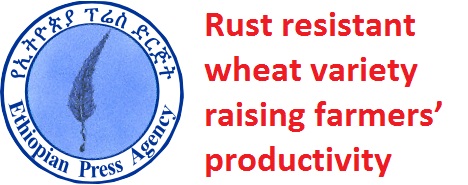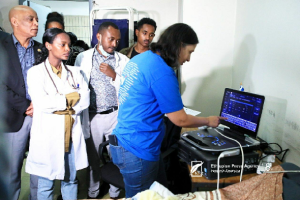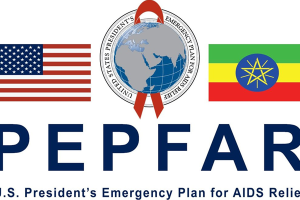
•Benefits millions from emergency seed supply
ADDIS ABABA — Ethiopian Institute of Agricultural Research (EIAR) said emergency wheat seed initiative played crucial role in minimizing wheat stem rust threat and enhancing wheat production over the past four years.
Dr. Dribba Gelete Deputy Director General at EIAR told The Ethiopian Herald that the project, which was initiated by the International Maize and Wheat Improvement Center (CIMMYT) and the Institute, has been implemented through multiple approaches. He said effective tasks have been done in wheat stem rust affected areas by introducing new seed varieties, emergency seed supply and creating market linkage for the farmers.
“The new seed variety called ‘kingbird’, which was brought from Kenya, has shown effective result on the wheat production and minimized the threat of stem rust,” he noted. Dr. Bekele Abeyo Country Director General at CIMMYT for his part said a yellow rust epidemic has severely affected Ethiopia’s wheat production in 2010. Even though a new seed variety called ‘Digalu’ was introduced to tackle the problem, it was also affected by another wheat rust, according to him.
Therefore, “We initiated the short term project ‘Emergency Seed Support and Demonstration of Rust Resistant Wheat Varieties in Stem Rust affected Areas of Ethiopia’. It was implemented in 54 Woredas of Different states in the country. As a result, we have been able to benefit 130, 000 farmers directly,” noted Bekele.
According to him, the above mentioned beneficiaries, who are engaged in seed production, were provided with special or improved seed varieties cost free. Thus, the varieties are multiplied by these seed producers and reached 1.6 million farmers who are considered as indirect beneficiaries. Bekele said production yield of wheat has increased by more than forty quintals per hectare in average. The national average wheat production this year is 27.4 quintal.
“The result in project target areas has ensured food security for the farmers and their families as well as earn better profit from the local market. It has also contributed in the Nation’s foreign exchange substitution by reducing wheat import to some extent,” he stressed. In line with the emergency seed supply and new technology introduction, awareness raising training for farmers and capacity building for government agricultural workers was part of the project implementation.
Bedilu Mamo a Model Farmer from Minjar Shenkora Woreda of Amhara State also told The Ethiopian Herald that he has been using different improved seed varieties, which are provided under the project. He said production yield ten years before was not more than 35 quintals per hectare. “Now it has increased to forty and sometimes to sixty quintals. Market linkage was also created with a foreign food complex company which is investing in Ethiopia.
Even though our yield highly increased, we couldn’t meet the demand of the factory. As a result the company has to cancel its deal and take it somewhere else. More farmers still need to engage in durum wheat production to enhance our industrial market linkage,” noted Bedilu.
The Ethiopian Herald, March 16/2019
BY HENOK TIBEBU





